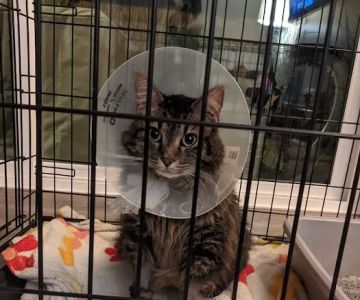How to Care for a Senior Rabbit: Tips for Keeping Your Elderly Rabbit Healthy
- Understanding Senior Rabbit Needs
- Dietary Needs for Senior Rabbits
- Health Monitoring for Aging Rabbits
- Exercise and Environment for Senior Rabbits
- Common Illnesses in Senior Rabbits
1. Understanding Senior Rabbit Needs
As rabbits age, their needs evolve. Senior rabbits are typically considered those aged five years or older, depending on their breed and health. Much like humans, older rabbits experience changes in metabolism, physical capabilities, and behavior. To ensure your senior rabbit is healthy and comfortable, it is important to understand these changes and adapt your care routine accordingly.
Senior rabbits may become less active, may suffer from joint pain, and might have a more sensitive digestive system. They may also require more attention to their mental health, as older rabbits can experience cognitive decline or stress more easily. Understanding these needs will help you provide the best care possible for your aging bunny.
2. Dietary Needs for Senior Rabbits
One of the most important aspects of caring for a senior rabbit is providing the right diet. As rabbits age, their dietary needs change to maintain optimal health. Senior rabbits need a diet that supports their slower metabolism and helps prevent common issues like obesity and gastrointestinal problems.
- Hay: Hay should remain a staple in your senior rabbit's diet, as it provides essential fiber for digestion. However, some elderly rabbits may have difficulty chewing certain types of hay, so offering softer hay options or hay cubes can be a helpful alternative.
- Fresh vegetables: High-quality leafy greens, such as parsley, cilantro, and dandelion greens, should still be included in their daily meals. Avoid vegetables that are too high in sugar or starch.
- Pellets: Choose high-fiber pellets designed specifically for senior rabbits. These are often lower in protein and higher in fiber, supporting healthy digestion and preventing obesity.
- Water: Ensure your senior rabbit has access to clean, fresh water at all times. Older rabbits may be more prone to dehydration, so it's important to keep them hydrated.
Tailoring their diet to their age-specific needs helps maintain their health, ensuring they stay energetic and active for as long as possible.
3. Health Monitoring for Aging Rabbits
Regular health monitoring is essential for senior rabbits to identify potential health issues early. Many conditions common in older rabbits, such as dental disease, kidney problems, and arthritis, can be managed more effectively if detected early. Some key aspects to monitor include:
- Teeth: Dental health is crucial for senior rabbits. Regularly check their teeth for overgrowth, as dental issues are common in older rabbits. Make sure your rabbit’s diet includes plenty of fiber to help wear down their teeth naturally.
- Weight: Maintain a healthy weight for your senior rabbit. Overweight rabbits are more prone to joint problems and other health complications. Regularly weigh your rabbit and consult your vet if there are any noticeable weight changes.
- Behavior: Pay attention to changes in behavior, such as decreased grooming, reduced appetite, or difficulty moving. These could be signs of pain or discomfort.
Frequent vet check-ups are also important to track any changes in health and address them proactively. Your vet may suggest additional supplements or medications to support aging joints, teeth, or digestive health.
4. Exercise and Environment for Senior Rabbits
While older rabbits may not be as active as their younger counterparts, they still need regular exercise to maintain their muscle strength and overall health. Providing a safe, comfortable environment is key to keeping them mentally and physically stimulated.
- Exercise: Encourage light playtime with safe toys that won’t stress your senior rabbit. Simple activities like gentle hopping or offering items to climb on can keep their joints flexible and improve their mobility.
- Comfortable living space: Ensure your senior rabbit has a clean, quiet, and accessible living area. Provide soft bedding and avoid placing them in areas where they might be exposed to drafts or sudden temperature changes.
- Low-impact surfaces: If your rabbit is suffering from arthritis or joint issues, consider using soft flooring or padding in their exercise area to reduce strain on their joints.
Tailoring the environment to the needs of a senior rabbit is important to their mental and physical well-being.
5. Common Illnesses in Senior Rabbits
As rabbits age, they become more susceptible to certain health conditions. Some common illnesses to watch for in senior rabbits include:
- Arthritis: Many senior rabbits develop arthritis, which can make movement difficult and painful. Providing a soft, warm place to sleep and offering pain relief under the guidance of a veterinarian can help manage the condition.
- Kidney disease: Kidney issues are more common in older rabbits. Regular vet visits and keeping your rabbit hydrated are essential for managing kidney health.
- Dental disease: Overgrown or misaligned teeth can cause pain and difficulty eating. Regular dental check-ups are important for senior rabbits to prevent this issue.
Monitoring your rabbit’s health closely and seeking prompt veterinary care when needed can help manage these issues and improve their quality of life.
If you’re looking for expert advice and assistance in caring for your senior rabbit, visit Hidden Brook Veterinary for trusted support and recommendations for your aging bunny!











